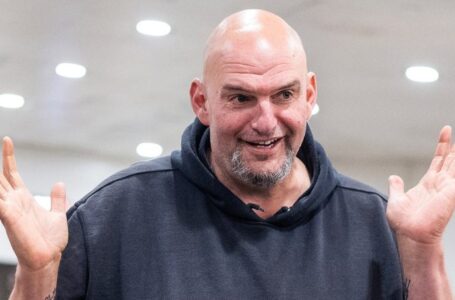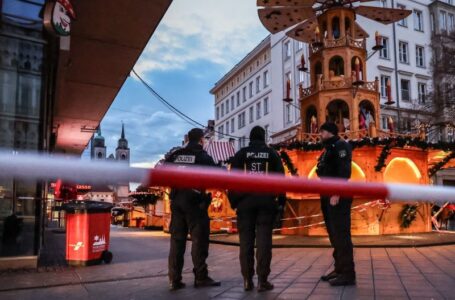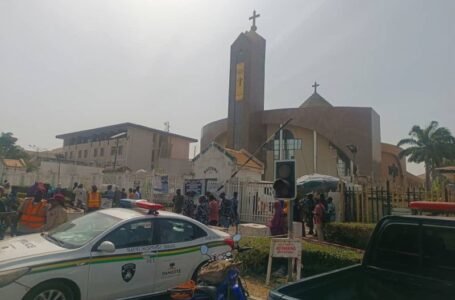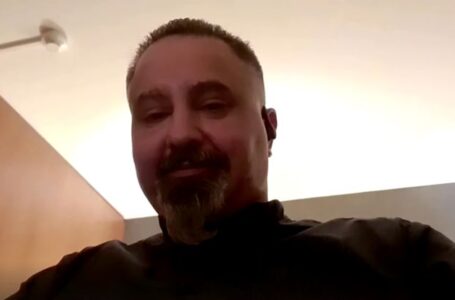Sen. Rand Paul pledges to get Trump’s cabinet picks approved ‘as quickly as possible’
Alleged murder of Sydney couple by police officer reopens old wounds in LGBTQ+ community
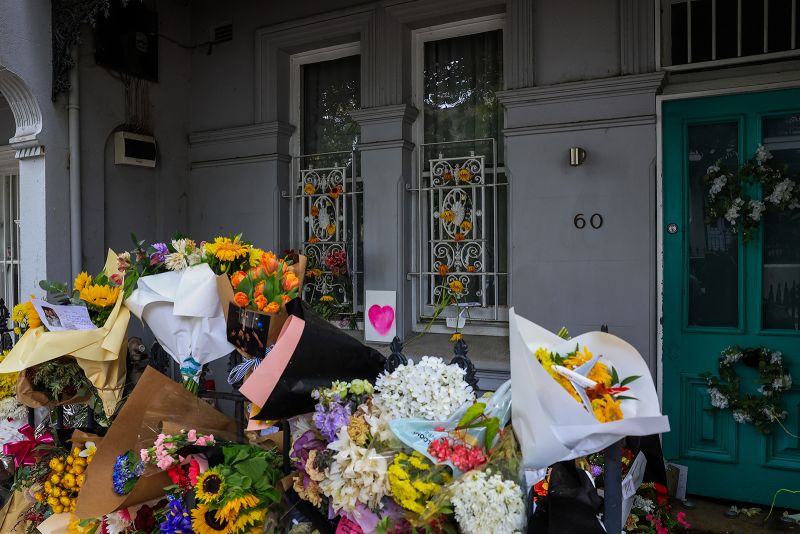

The alleged murder of a young Sydney couple by a serving police officer has opened a tragic new chapter in the troubled history between the force and the city’s LGBT+ community and cast a shadow over Mardi Gras, a vibrant annual celebration of their culture.
Senior New South Wales Police Constable Beaumont Lamarre-Condon, 28, was charged last week with the murders of Jesse Baird, 26, and Luke Davies, 29, whose bodies were found on a rural property a week later hidden in surf bags.
Police will allege that Lamarre-Condon used his police-issue pistol to kill the two men at Baird’s Paddington home in Sydney’s east on February 19, before hiring a van to move their bodies and keeping the location secret from detectives for days after his arrest.
The alleged killings shocked Sydney’s LGBT+ community, and on Friday night its members held a vigil for Baird and Davies, who had been expected to join revelers at the Gay and Lesbian Mardi Gras, the annual parade that serves as a celebration of their identity and a protest against homophobia and victimization.
Nearby, protesters vented their anger with police assigned to control crowds on the eve of the parade, according to video posted to social media.
Police say Lamarre-Condon had a past relationship with Baird, a popular television presenter. Questions are being asked about how the constable passed police recruitment screening, and the procedures that apparently allowed him to check out a police gun and return it after the alleged murders.
The community was also taken aback by comments made by NSW Police Commissioner Kate Webb, who initially called the case a “crime of passion,” for which she apologized.
She was also accused of flippancy when she invoked Taylor Swift in response to criticism about the police response – “Haters gonna hate. Isn’t that what Taylor says?” Webb said, again later apologizing.
Amid strained relations in the days leading to Mardi Gras, many objected to any involvement by NSW police in the event – and the Mardi Gras organizers initially withdrew their invitation for officers to march.
“Our community needs space to grieve the loss of Jesse and Luke who, before this tragedy, would have been here celebrating with us at the festival,” the Mardi Gras board said in a statement.
Adding to that distress was a photo circulated widely of the alleged killer marching in police uniform at the 2020 Mardi Gras.
After days of negotiation, Webb announced police officers would be able to march, but not in uniform.
“I am delighted that our LGBTQIA+ officers, as well as our other police who are allies and supporters, will be allowed to march this year as they have done for the past 20 years,” she said. “I am committed to continuing to strengthen the relationship between my organization and the LGBTQIA+ community.”
But activists say Webb and her force have taken little action to right historic wrongs, and that their participation in the march is performative.
Violent beginnings
For the past two decades, LGBT+ officers and their allies have marched in the Mardi Gras – an image of detente that event organizers say has “developed a constructive relationship that has helped us progress towards a more reconciled future between NSW Police and the LGBTQIA+ community.”
It’s been considered part of the healing process after an era of rampant homophobia and discrimination that created deep mistrust between the gay community and police officers.
Sydney’s Mardi Gras was born of a brutal crackdown on LGBT+ activists by police six years before gay male sexual behavior was decriminalized in NSW in 1984.
That night marchers were “trapped by police and viciously beaten and 53 people were arrested,” says Robert French, who is known as a ‘78er – the honorific held by those involved in the first Mardi Gras in 1978 and the protest movement it immediately spurred.
“So there has always been this fraught relationship,” French said. “I balk when I see police at the parade, but then I laugh and think, well, given that they started it I suppose they have a right to be here.”
In 2016, then NSW Police Superintendent Tony Crandell apologized to the ‘78ers on behalf of the force, stating: “Our relationship these days is healthy, positive and progressive, but that wasn’t the case back then.”
History of ‘gay hate’
In December the NSW state government received the report of its “Special Inquiry into LGBTIQ Hate Crimes,” a task force with powers to investigate unsolved suspected hate crime deaths of 32 people between 1970 and 2010.
Police attitudes toward the LGBT+ community formed a cornerstone of the investigation, which found the force had failed to properly investigate gay hate crimes over the 40-year period.
The police had acted with negligence and hostility toward victims and their families, commissioner of the inquiry Justice John Sackar found.
Last Sunday, police commissioner Webb made another apology on behalf of the force, for “not adequately and fairly investigating those deaths between 1970 and 2010.”
“The mistakes of the past will not define our future,” Webb said.
But despite the apology, police have not yet formally accepted any of the 15 recommendations Sackar made at the closure of the inquiry in December.
Recommendations to police included reinvestigating some of the suspected hate crimes murders, but also for officers to take courses in LGBT+ bias and to improve relations with the LGBT+ community.
For ‘78er French, action on those issues is the only path to reconciliation between police and his community.
“They always want control, they do not open to criticism, they do not like criticism, and they are not prepared to put themselves in a situation, as they have been forced to with the inquiry, to answer critics within the [LGBT+] community,” French said.


